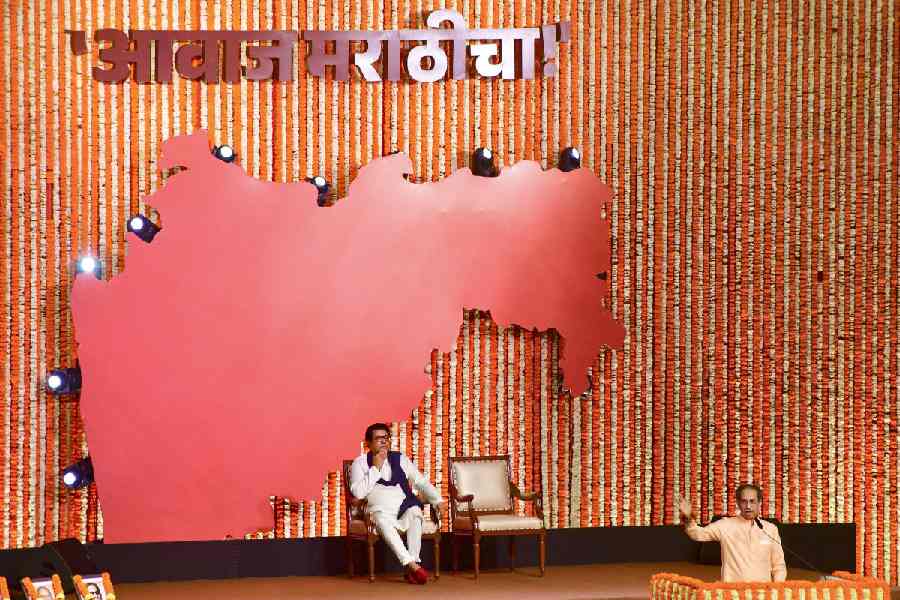 |
| Tribal women showcase their creation at Sarjamda on Friday. Picture by Bhola Prasad |
Jamshedpur, July 8: A wood sculpture adorning the walls of 10 Janpath, New Delhi, or Mumbai’s iconic Taj Mahal Palace and Tower may have once been driftwood lying in some forest or slum.
But such waste wood transforms into art — and wealth — for tribal women at Sarjamda, 25km from the city.
Jamshedpur-based NGO Progressive Development Society trains 40 tribal women in making driftwood sculptures, which have travelled far and wide to illustrious addresses such as Sonia Gandhi’s residence in New Delhi, Himachal Pradesh chief minister Prem Kumar Dhumal’s home and Mumbai’s Taj. Now, the NGO is planning to market the pieces in bulk overseas.
NGO secretary Ashok Giri, who had learnt driftwood carving during his stay in Jammu & Kashmir six years ago, has been instrumental in training tribal women in the painstaking craft. Many pieces have already been sold the US, Canada, UAE, UK and Japan through Council for Advancement of Peoples’ Action and Rural Technology (Capart), a wing of Union rural development ministry.
The success story is even more stunning when one considers the fact that the initiative is just six months old.
“We started a driftwood art centre six months ago inside a hut of a tribal woman at Sarjamda. Now, 40 women are undergoing the training. It takes two or three days to finish a driftwood piece. The selling price is between Rs 500 and Rs 40 lakh,” Giri said, claiming this was a one-its-kind unit in the state.
Elaborating on the process, Giri said: “Women collect waste wood from river banks or near forests and slums and bring it to the centre. Then, we peel the outer layer of the wood and apply a special medicine that I outsource from a Srinagar-based agency. The coated wood is dried for at least five hours to kill insects. Then, the wood is rubbed to make the surface plain and shiny, polished and painted with designs that showcase the artist’s creativity.”
Nagi Boipai (28), a woman engaged in the craft, said they earned Rs 3,000-5,000 a month. “Earnings are based on the waste wood we collect and the designs we think of. Sometimes, we do face shortage of wood. The recent thunderstorms, which uprooted many trees, came as a boon,” she said.
The NGO also trains 40 tribal women at Cholagora in Sarjamda area in making metal-embossed flowerpots and vases, in which old and unused aluminium and copper plates and utensils are used. “These fetch us between Rs 100 and Rs 1,000 per piece,” said Giri.










